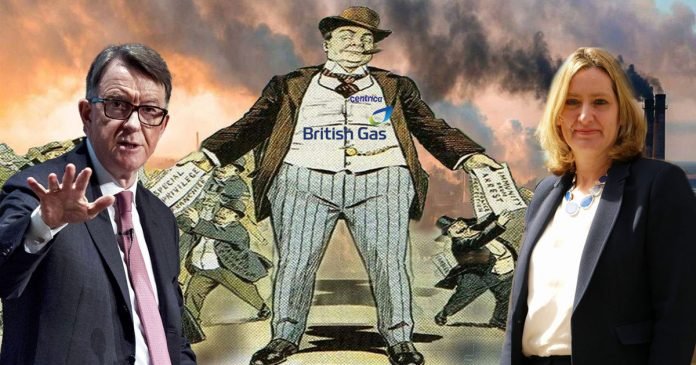There’s a Revolving door from Westminster to the Boardrooms of the Banks and Energy companies, that’s why most politicians will always protect the oligarchy over the people.
We will never get true representation with MPs working towards the common good while ever they have external influence that rewards them while in public office or when they leave.
The term ‘revolving door’ refers to the movement of senior individuals from public office positions to jobs in the private sector and vice versa. In many countries, this has tended to deal more with people moving OUT of the public sector and has been particularly important in countries with elite, career civil services such as the UK.
Recently we’ve not only seen the Revolving door propelling politicians and civil servants ‘out ‘of public life into the boardroom but in a true sense meaning of revolving door we have seen massively successful people enter politics from the private sector, ironically sitting in the House of Commons we see Bankers, Directors and executives, supposedly making legislation based upon the common good but more often than not allowing more freedom to the market. Historically opening-up avenues that can later lead to abuse as witnessed with the financial crash following massive deregulation of the banking industry.
Westminster has allowed MPs to have a foot in both camps, they like to refer to them as second jobs.
Second jobs have been an issue for a very long time, apart from the fact being an MP should be a full-time job it also opens up many questions on bias and influence.
According to research into the register of members’ interests, 148 MPs spent some time on a second job in the period from January 2020 to August 2021.
Between the months of January 2020 and August 2021, MPs accumulated at least £9,446,000 in total in additional income to supplement their base salaries, which average more than £80k.
The MP with the largest number of outside commitments was Labour’s David Lammy, with 24 entries.
However, all but one were one-off speeches at various events, with the other an ongoing stint as a presenter on UK radio station, LBC. In total, he earned £76,521 over the 20-month period, or £292 per hour for 262 hours of work.
The busiest MP was Labour’s Dan Jarvis, who worked 2,413.7 hours over the period of 20 months, which is the equivalent to 27.8 hours per week, or just under four working days.
The vast majority of this time was spent on his role as mayor of the Sheffield City region, for which he has announced he will not seek re-election.
Out of the 148 MPs 114 were Conservatives, whose activities made up for 87% of the income from those second jobs. Most of that income is from roles in the private sector; accountancy, investment banking, energy, pharmaceuticals and independent legal work. Such is the time dedicated to these roles, and the pay netted from them, that it could be argued that being an MP is itself the second job; or in some instances, the third or fourth.
Pissing in the tent!
Having a foot in both camps is not unusual and it’s certainly lucrative for everyone except the people MPs are supposed to represent.

We can look at Sajid Javid, Sajid Javid, Ex-Banker, Ex-Chancellor, Ex-Health Secretary Ex-Non-Dom, and ex-Tory leadership contender.
Javid’s spent nine years at the German lender Deutsche Bank before he became a politician.
Working as a banker earning £3 million a year leading up to and during the financial crisis, Sajid Javid held several senior executive positions at Deutsche Bank, including a role in the department that structured collateralised debt obligations.
Collateralised debt obligations or CDOs are a type of complex financial product deemed to have played a critical role in the 2008 crisis. Banks were accused of packaging highly rated loans with more toxic forms of debt and selling this on to investors, CDOs were the main contributor to the financial collapse.
At the height of the housing boom around 2005, the riskiest securities accounted for around 5% of a CDO. By 2007 they accounted for as much as 40%. these were the people selling subprime mortgages and raking in a fortune that later resulted in austerity for everyone else.
He didn’t even need to pass through the revolving door he kept his job as an MP while working for US banking giant JP Morgan as a senior advisor.
JP Morgan hired former Labour Prime Minister Tony Blair as a global advisor after leaving office in 2008, ex-PM Gordon Brown is an advisory board member of the investment firm PIMCO and three ex-Chancellors have also made the jump. George Osborne took up a £650,000-a-year advisory post at the investment bank BlackRock, Philip Hammond is currently a partner of the energy investment outfit Buckthorn Partners and Alistair Darling sits on Morgan Stanley’s board of directors.
Sadly this handful of past residents from Numbers 10 and 11 Downing Street only scratch the surface, countless other examples can be found across the civil service, the Cabinet and the House of Lords.
Sajid Javid is not the only Ex-Banker, Ex-Chancellor, Ex-Green card holder, and Ex-Tory leadership contender. Rishi Sunak was dogged by accusations that he benefited from the 2008 financial crash.
Javid’s move also mirrors the journey of our current Chancellor Rishi Sunak, who worked for the investment bank Goldman Sachs before taking up his parliamentary seat in 2015.
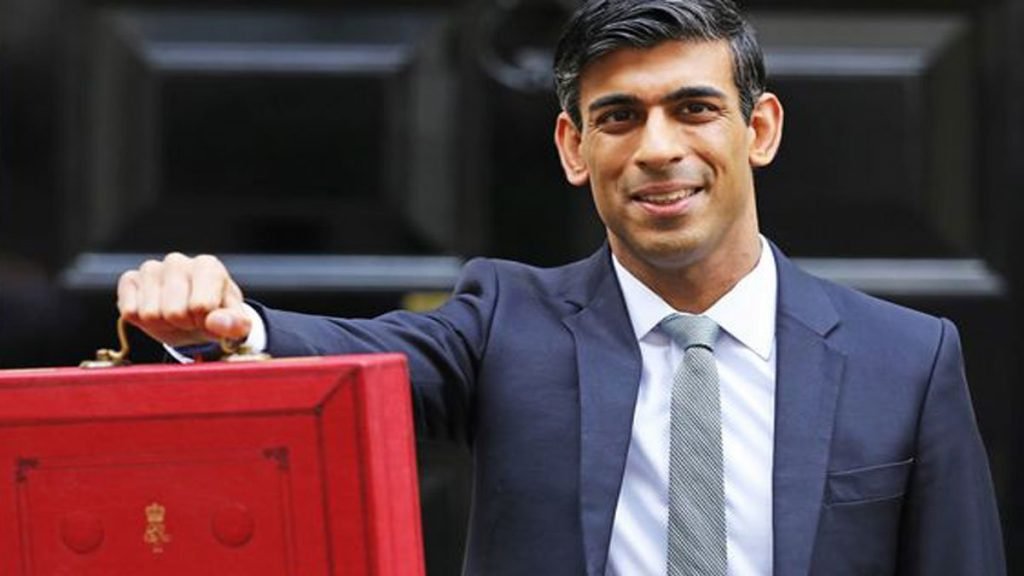
Sunak was a partner at hedge fund TCI when it launched a campaign against Dutch bank ABN Amro forcing its sale to Royal Bank of Scotland (RBS) triggering a chain of events that contributed to the 2008 crash.
Both earned millions from Banking and in Javid’s case continued to do so while an MP. The question is why enter politics and public life when the privet sector was so lucrative? Politicians have short life spans and while ever that door keeps turning, they can pop in or out, we understand Influence works both ways.
They are just two examples of extremely highly placed MPs, however, It doesn’t matter what political Party the Revolving door is open and keeps spinning.
In the absence of a rigorous system of control, the revolving door between government and business provides a constant source of unease and a diet of almost self-evident conflicts of interest which are regularly featured in the columns of Private Eye.
A report on the Revolving door commissioned by the Barrow Cadbury Trust states: ‘In the words of one polemicist, ‘it defies rationality to believe that the prospect of far better-paid jobs in the private sector doesn’t influence the decisions of ministers or officials – or isn’t used by corporations to shape policy.’
Ministers and officials have regular and close dealings with commercial companies. This raises the possibility that they will treat a company generously and give it improper preference if there is a prospect of future employment with that company. The business appointment rules were explicitly designed ‘to avoid any suspicion that the advice and decisions of a serving officer might be influenced by the hope or expectation of future employment with a particular firm’. Since this pathology affects serving officials it would be difficult to detect until the official leaves the service.
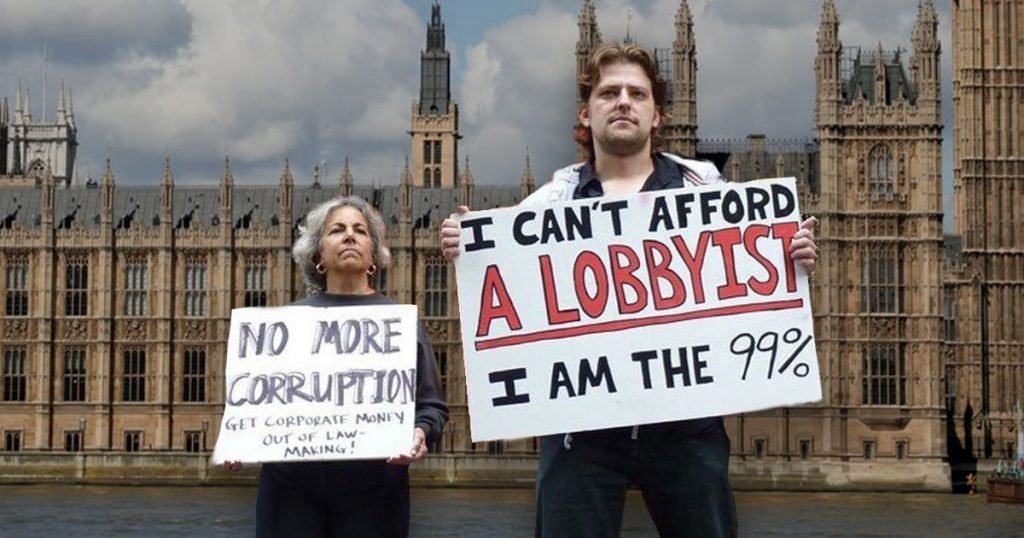
It’s not just the UK this is a worldwide attack on democracy, by the Olicharchy that not only influences governments through their lobbyist but infiltration into governments by agents of the Oligarchy.
Simon Johnson, the former International Monetary Fund economist, in his book 13 Bankers, argued that Goldman Sachs and the other large banks had become so close to government in the run-up to the financial crisis that the US was effectively an oligarchy.
At least European politicians aren’t “bought and paid for” by corporations, as in the US, he says. “Instead what you have in Europe is a shared world-view among the policy elite and the bankers, a shared set of goals and mutual reinforcement of illusions.”
This is The Goldman Sachs Project. Put simply, it is to hug governments close. Every business wants to advance its interests with the regulators that can stymie them and the politicians who can give them a tax break, but this is no mere lobbying effort. Goldman is there to provide advice for governments and to provide financing, to send its people into public service and to dangle lucrative jobs in front of people coming out of government.
The Project is to create such a deep exchange of people and ideas and money that it is impossible to tell the difference between the public interest and the Goldman Sachs interest.
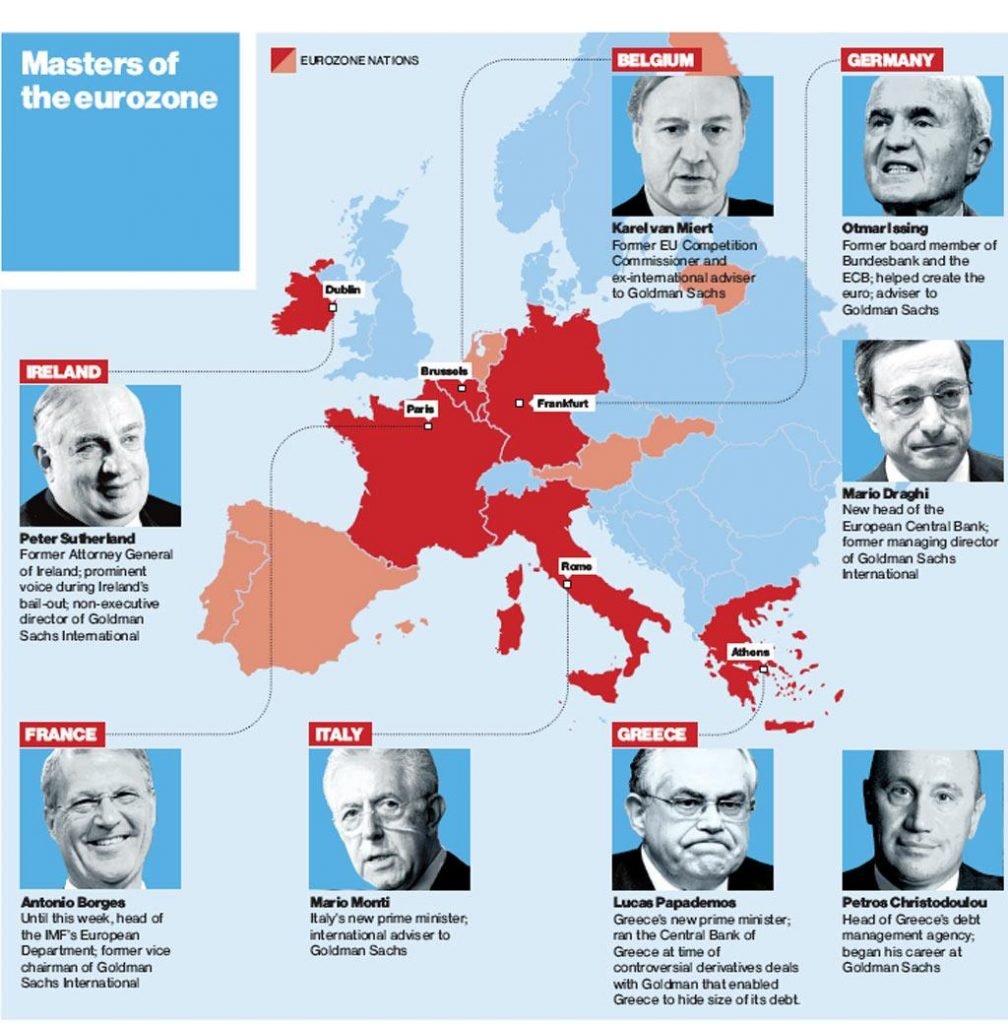
In a 1993 Commons debate on The Maastricht Treaty, Jeremy Corbyn stated that the European Central Bank – the bank at the centre of the Eurozone – had too much unaccountable power.
“Will my hon. Friend tell us how he proposes to influence a European central bank that is composed of bankers who are appointed for eight years, who are answerable and accountable to nobody and whose policy objective has been set down?” he said in the chamber.
“How does he propose to influence them when there is no mechanism to allow that to happen?”
During the same debate, he said: “The whole basis of the Maastricht treaty is the establishment of a European central bank which is staffed by bankers, independent of national Governments and national economic policies, and whose sole policy is the maintenance of price stability.
“That will undermine any social objective that any Labour Government in the United Kingdom—or any other Government—would wish to carry out.”
We can also speculate what influence former ministers and high-ranking politicians have on government, even the opposition. We have seen in recent months and throughout the Covid crisis former Prime ministers, both Tory and Labour offering their advice, Tony Blair boasting he was giving official advice through the narcissistically named “Tony Blair Institute for Global Change.” to the then Health secretary Matt Hancock.
ENERGY CONTROLL
“He who controls the spice, controls the universe.” ― Frank Herbert, Dune
Energy is the stuff that makes a modern economy from steam to nuclear it has been the fuel of the industrial world. Without cheap energy, it all goes “Tits up”.
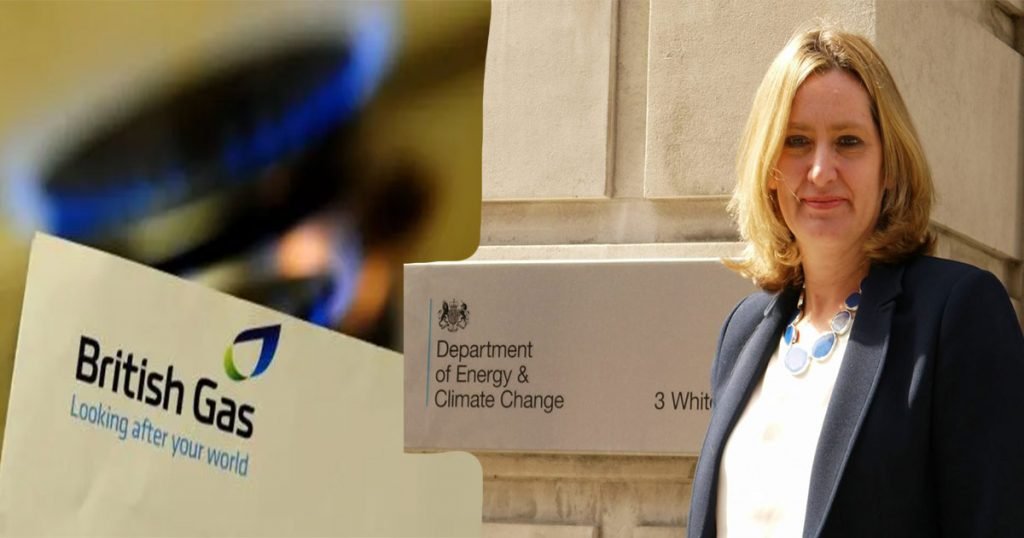
When it comes to the present crisis some influential figures seem a little coyer about their connections to the energy companies. Coming at a time when we are facing such an unprecedented attack from the oligarchy on the working classes, it’s incumbent that it is brought to light some of those very influential figures who have used the Revolving door to work with, and for the energy companies.
Sitting on the board of British Gas is none other than the former Secretary of State, Ex-Secretary of State for Energy and Climate Change, Amber Rudd.
In January 2022, British energy and services multinational company Centrica (British Gas), appointed Rudd as Non-Executive Director to the board of the company; she also took a seat on the Safety, Environment & Sustainability Committee and the Remuneration Committee of the company.
Rightly so GMB Union National Secretary Andy Prendergast criticized her appointment while British households and companies are facing unprecedented energy bills, saying that “Amber Rudd’s appointment to the board of Centrica is simply the wrong person at the wrong time. “Her business background is questionable and her role as energy minister is marked by forcefully pushing for the competition system which has spectacularly failed over the last six months.
“Aside from turning up with a phone packed with the numbers of current serving Ministers, it is difficult to see what she brings to the company except to provide an example of the revolving door that exists between ex-Ministers and the very businesses that they were supposed to policing whilst in power.”
Commenting on Rudd’s credentials, Scott Wheway, chairman of Centrica said: “Amber was the driving force in the UK’s participation in the Paris Climate Change Agreement, the first legally binding global commitment to reduce national carbon emissions. She brings a wealth of real-world experience in energy, which will be invaluable as we face the challenge of delivering net zero and helping our customers live more sustainably and affordably.”
If that’s the case she certainly failed on that!
Again, the revolving door doesn’t care what political party you come from, it’s what you can bring to the table that counts.
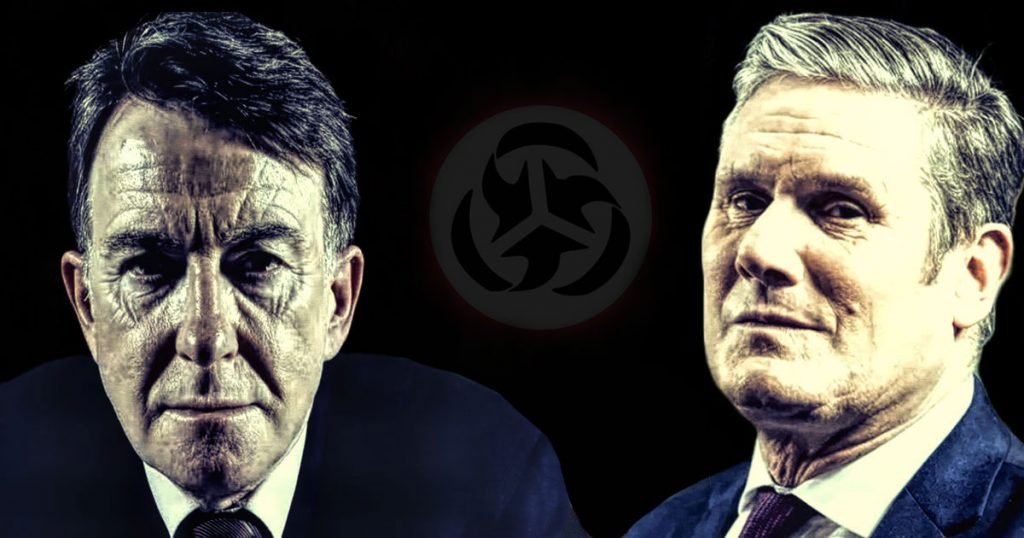
The Energy companies certainly understand having a Labour peer such as Lord Peter Mandelson on their books is more than just a key to Westminster, he is a ram that can knock down every door.
Mandelson, a former EU commissioner, Labour minister and First Secretary of State, Co-founder and Chairman of Global Counsel an international lobby company who is not only a current member of Sir Keir Starmer’s shadow cabinet but a fellow Trilateral commission member as well as an asset is priceless to them
Mandelson has insurmountable influence, in fact, it makes you wonder how he gets away with it, it seems to be the epitome of corruption., not only does he run his highly successful lobbying company he sits on the Labour shadow cabinet influencing policy and gets to vote on legislation in the house of Lords.
His clients aren’t the British people he serves the oligarchy, those that pay him most, that’s literally what lobbyists do.
Mandelson, not only has BP as a client he also holds a portfolio with Centrica.
Solomon Hughes for the Tribune gets it just right when he says:
“Mandelson, a lobbyist who represents banks, oligarchs, and firms like Centrica—the company behind the mass sacking of British Gas engineers—is helping to direct Labour strategy. For his ‘day job’, Mandelson owns and runs a company that takes Michael Gove to dinner and hires former Tory Ministers; as a hobby, he tells Keir Starmer what to do.”
Then it all makes sense why Labour so radically shifted its policy on Nationalisation to a policy that not only gives the energy companies £29 billion to freeze prices for six months but then would allow them to continue with their economic blackmail of course Labour keeps plugging a 10-year insulation program has a solution to extortion but that will not help business or the majority of households!
Mandelson’s influence not only on the leader of the Labour Party but within the Lords is a little disturbing when you understand he is paid to influence politics by the very companies that are now holding every person, business, school, college, university, pub, bar, sports centre and hospital in the country to ransom with their extortionate cost of energy.
The revolving door needs to be firmly shut but more so we need politicians willing to do their job and represent the people, not the oligarchy.
Support Independent Journalism Today
Our unwavering dedication is to provide you with unbiased news, diverse perspectives, and insightful opinions. We're on a mission to ensure that those in positions of power are held accountable for their actions, but we can't do it alone. Labour Heartlands is primarily funded by me, Paul Knaggs, and by the generous contributions of readers like you. Your donations keep us going and help us uphold the principles of independent journalism. Join us in our quest for truth, transparency, and accountability – donate today and be a part of our mission!
Like everyone else, we're facing challenges, and we need your help to stay online and continue providing crucial journalism. Every contribution, no matter how small, goes a long way in helping us thrive. By becoming one of our donors, you become a vital part of our mission to uncover the truth and uphold the values of democracy.
While we maintain our independence from political affiliations, we stand united against corruption, injustice, and the erosion of free speech, truth, and democracy. We believe in the power of accurate information in a democracy, and we consider facts non-negotiable.
Your support, no matter the amount, can make a significant impact. Together, we can make a difference and continue our journey toward a more informed and just society.
Thank you for supporting Labour Heartlands
